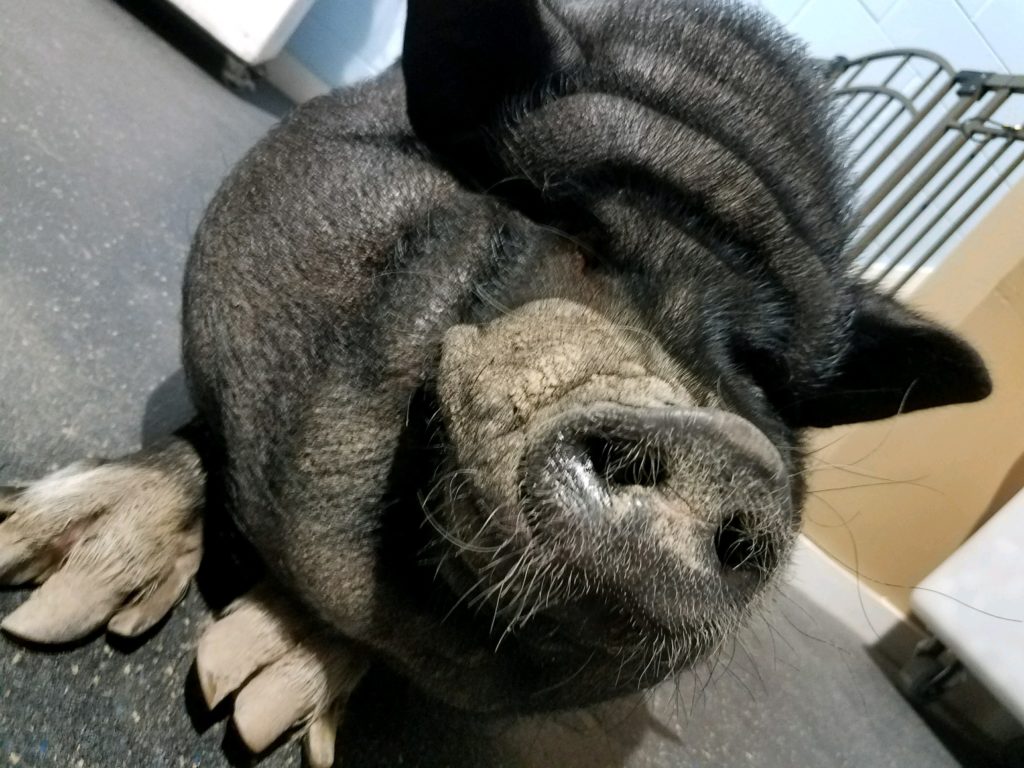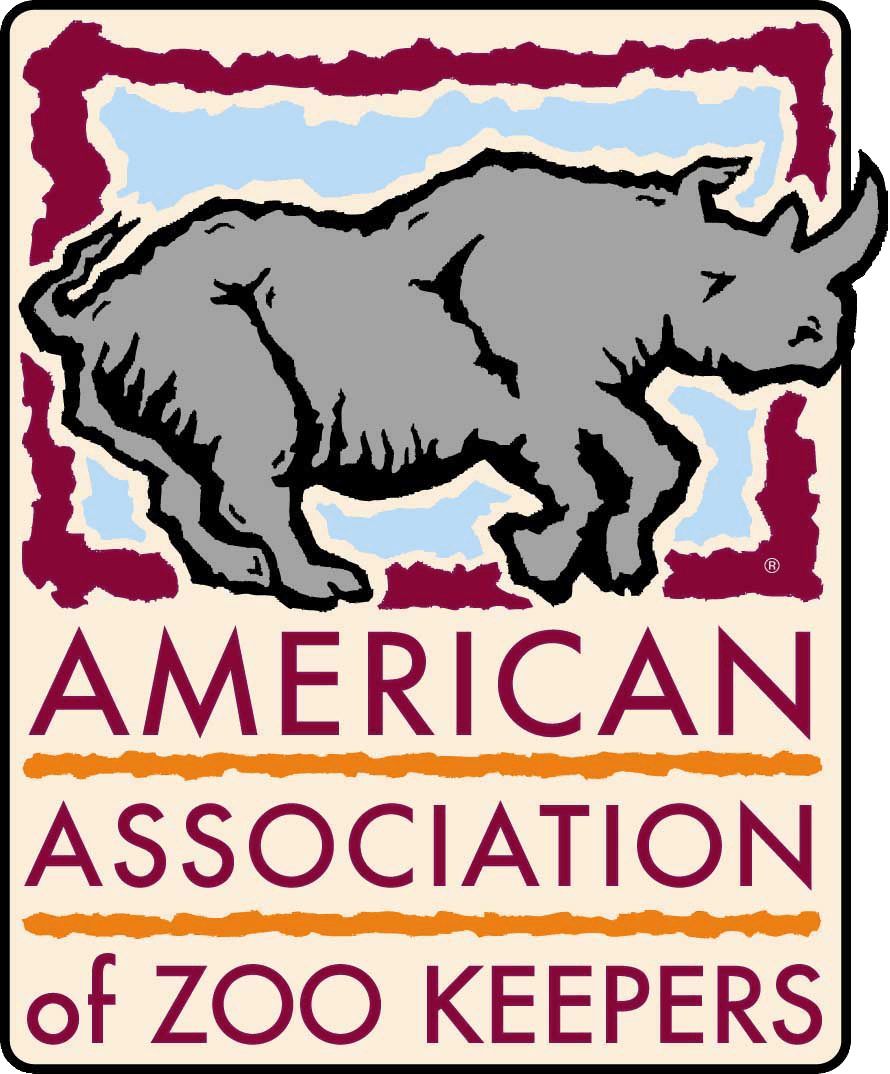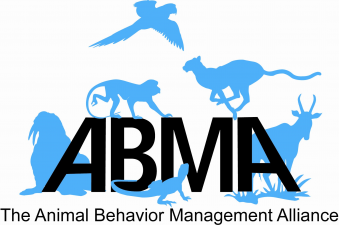
Before you consider adopting a “teacup pig,” you should know that teacup pigs don’t really exist. Yes, there are smaller pigs, but they are small only in comparison to 800+ pound farm hogs.
So the term teacup pig… well that’s just a load of HOGWASH! (har har, we crack ourselves up here at The Bunny Hutch!)
Unethical breeders will convince you to buy a teacup pig without having an honest conversation about growth realities. Here’s what you really need to know:
- Teacup pigs are really Vietnamese Pot-Bellied Pigs. There is no such thing, officially, as a “teacup” pig. This is a marketing term breeders developed to convince you to buy without doing your homework.
- These pigs will generally stay small(ish) for the first few years of life, but then they have a big growth spurt and can pack on the pounds.
- A teacup pig will grow depending on how much you feed it. The size of their parents is NOT an indication of how big they will grow to be. One of the pigs that was surrendered to us, Bentley, was about 200 pounds at the age of 3. His parents were both under 50 pounds.
- Dog food is not a good option for feeding your teacup pig. They should also never be given foods with a lot of salt or sugar. Pigs needs to have fresh vegetables every single day, plus grain and hay. High-end pot-bellied pig food is actually cheaper than dog food anyway!
- Pigs can be very territorial. It really depends on the specific pig and his or her training and the personality of the pig. They will “test” you by charging or biting if they are not trained properly. You need to have a strong personality to be a good pig owner.
It isn’t all bad news! Here are a few good things about adopting a pig:
- Vietnamese pot-bellied pigs are very smart. You can train them the same way you would train a dog. They can learn commands such as sit, lay down, and stay.
- You can train your pig to walk on a leash, just like a dog. It is all about positive reinforcement. Again, they are very smart!
- Pigs do great in one-story homes, especially if you have a doggy door so they can go in and out of a fenced-in yard as needed. They can be easily house trained, just like a dog.
Remember, “teacup pigs,” do not exist. If you are going to adopt a pig, try contacting your local rescue first to see if there are any pigs in need, and remember to do your research whenever you are considering a species or breed you don’t have experience owning.
Has this post helped you? Please consider donating to help us save more abandoned animals.








